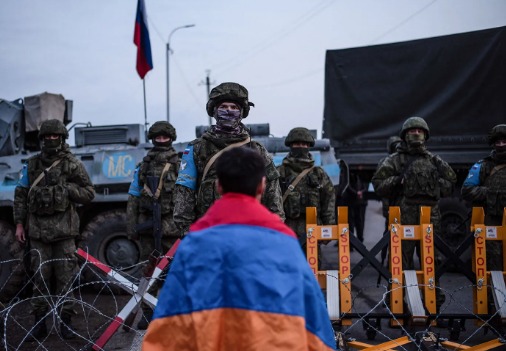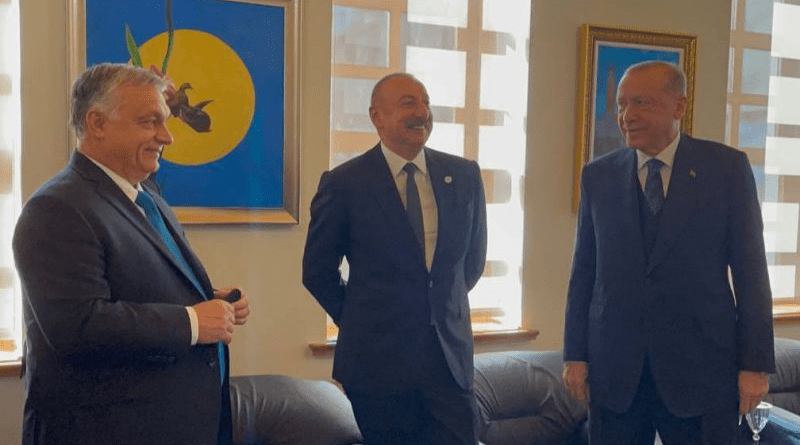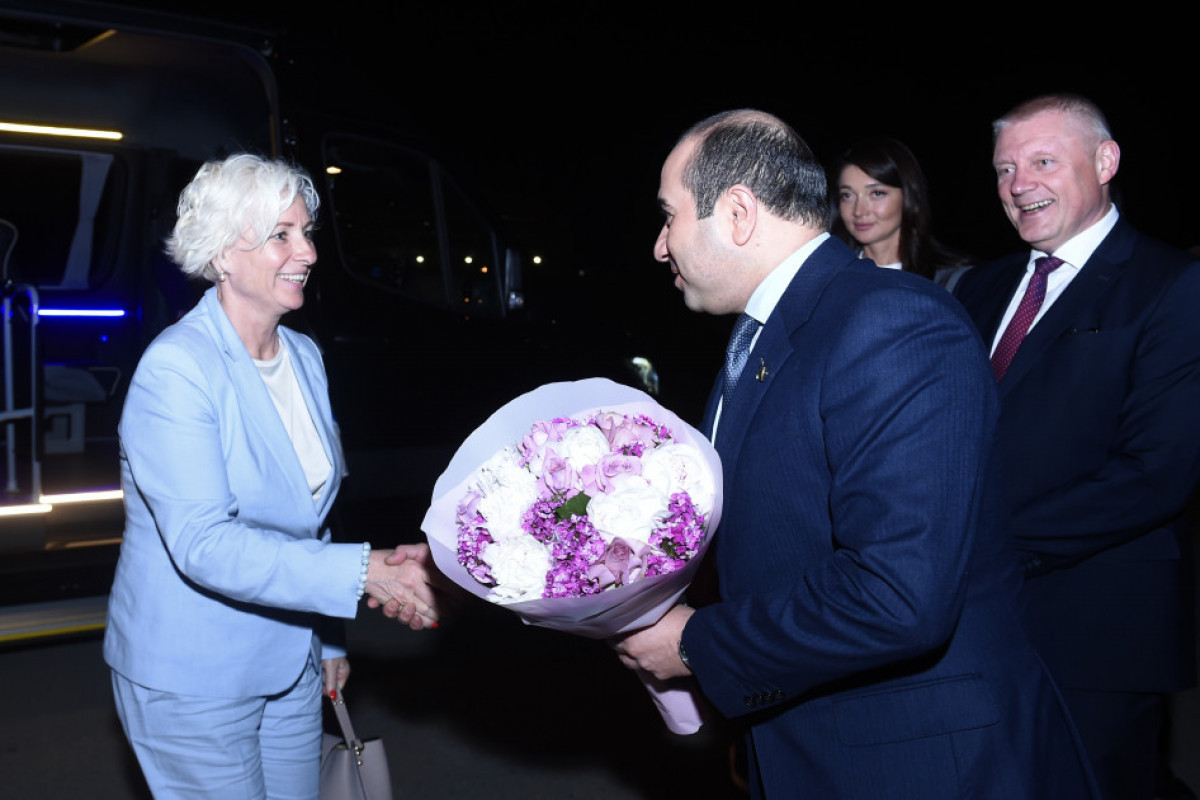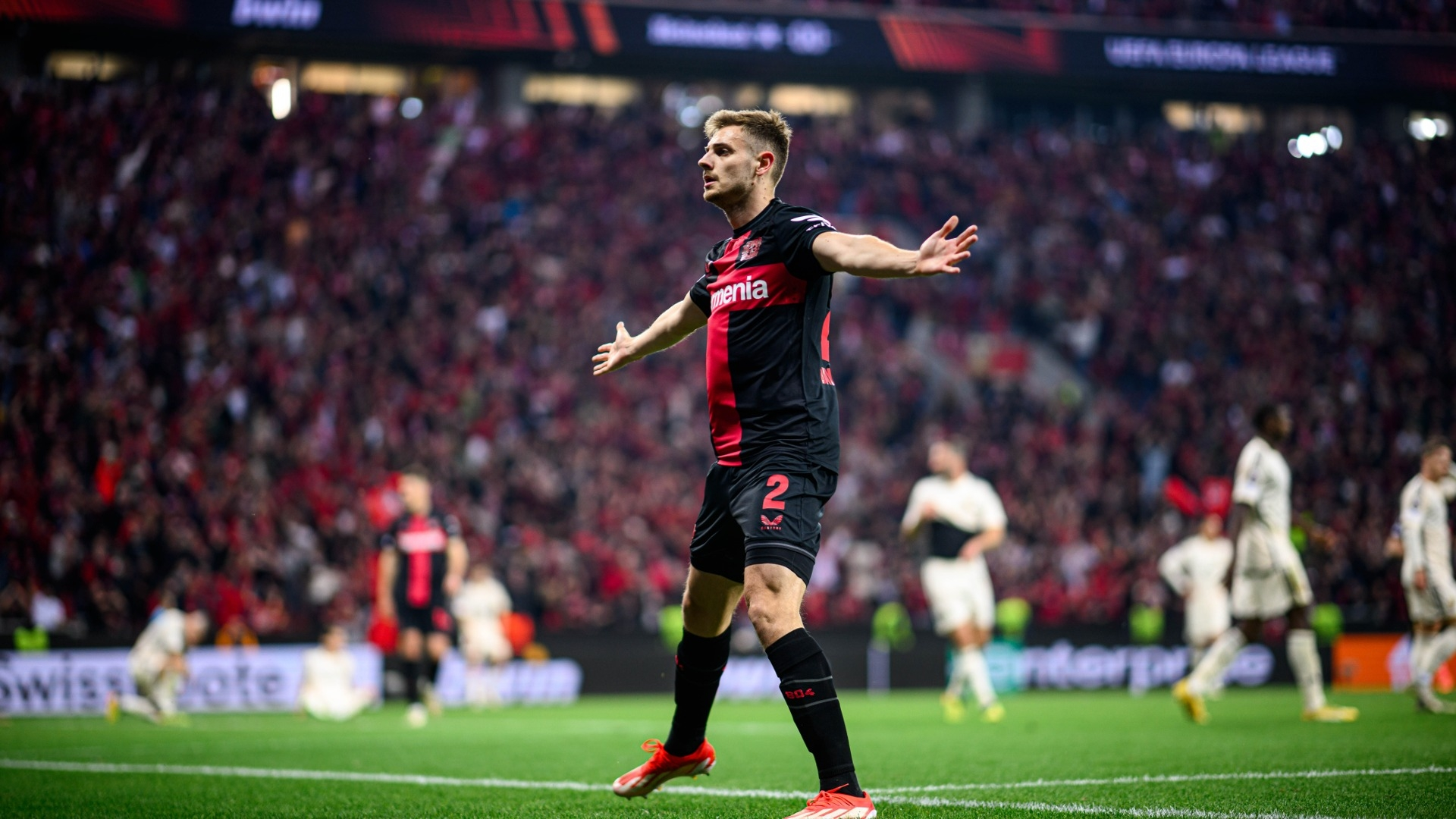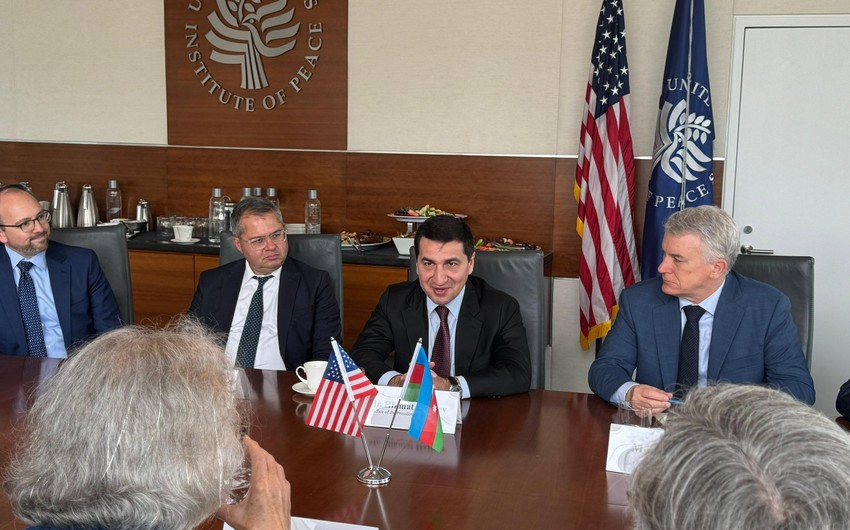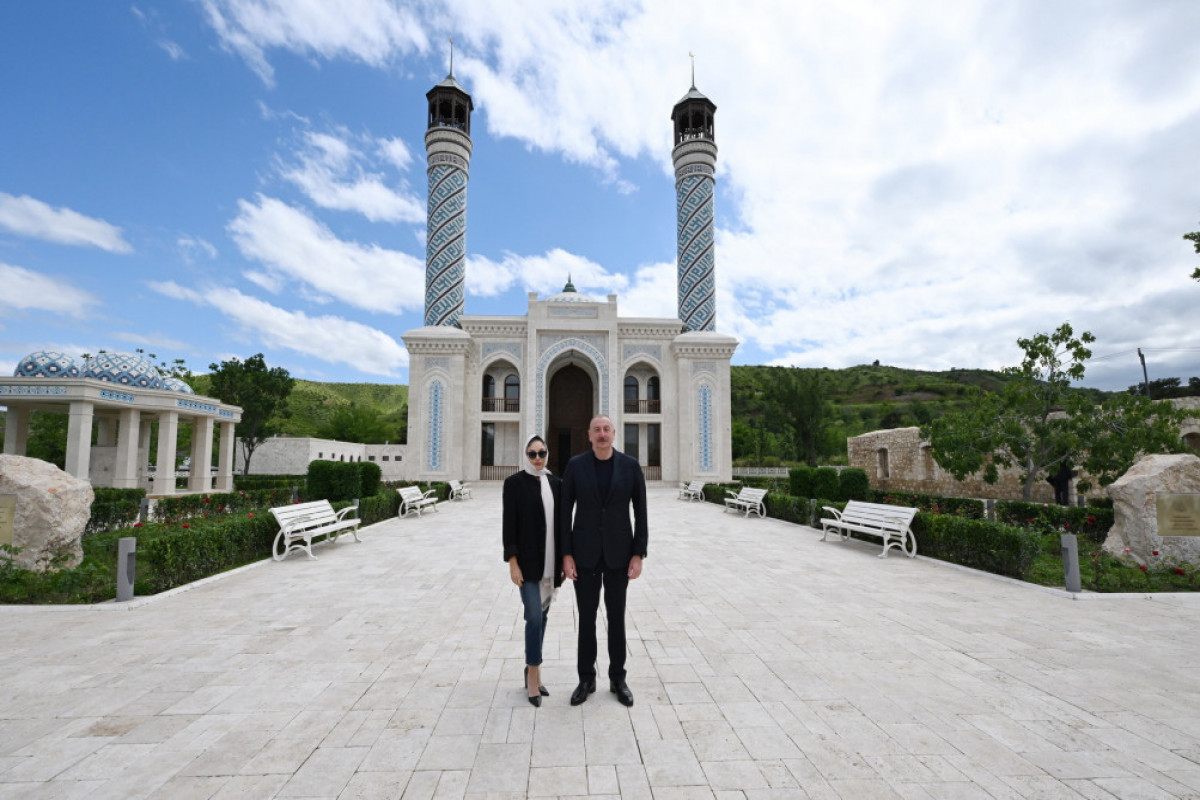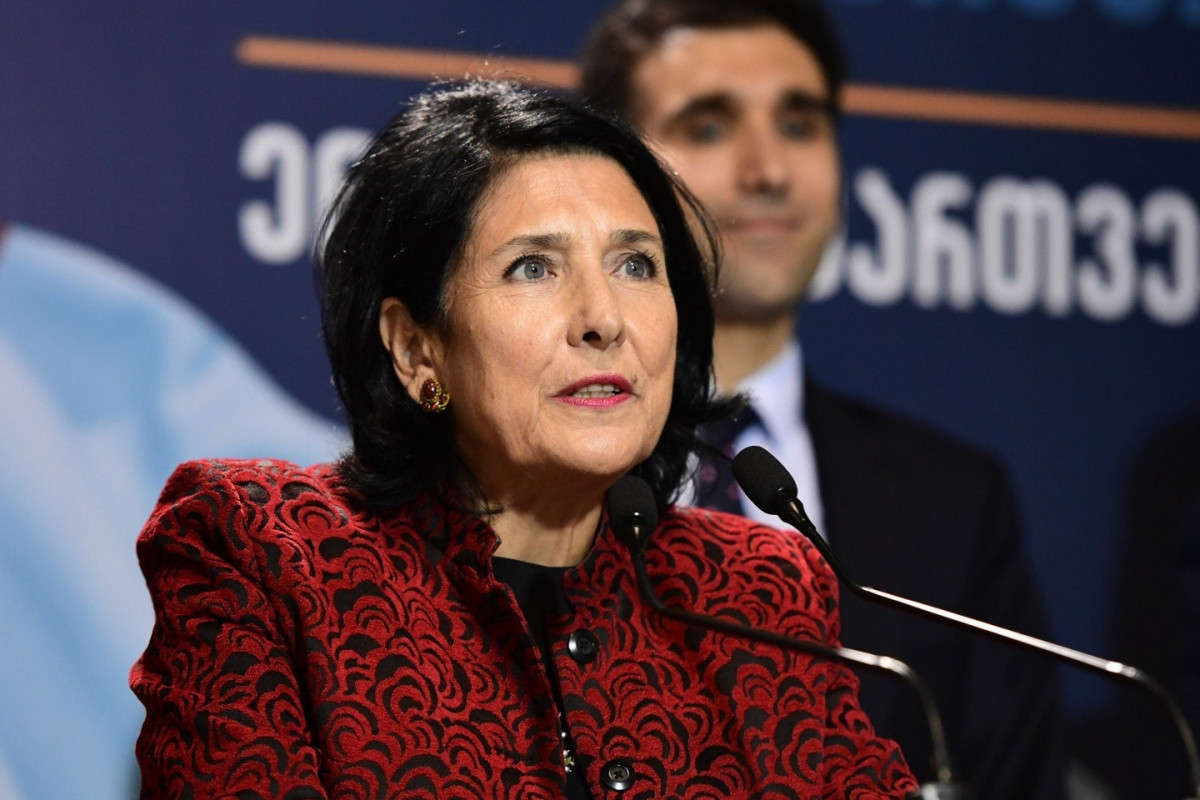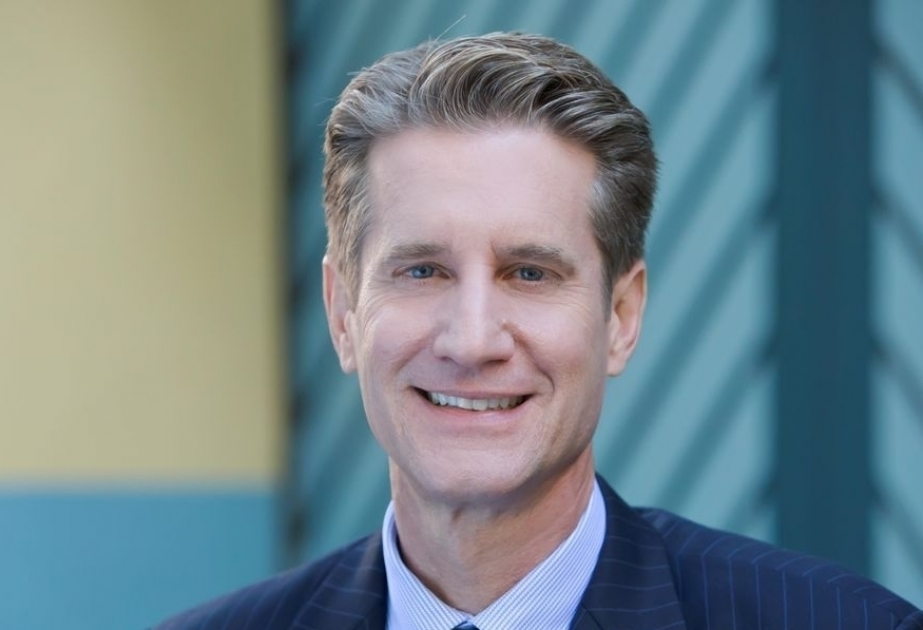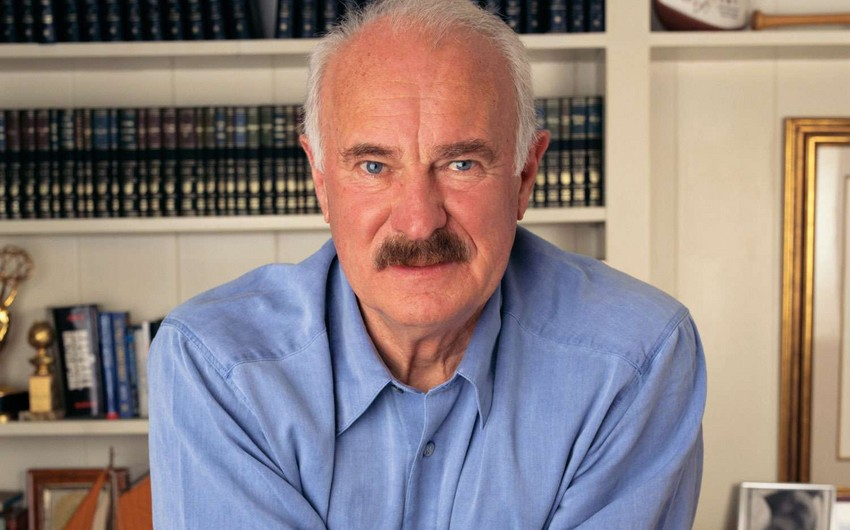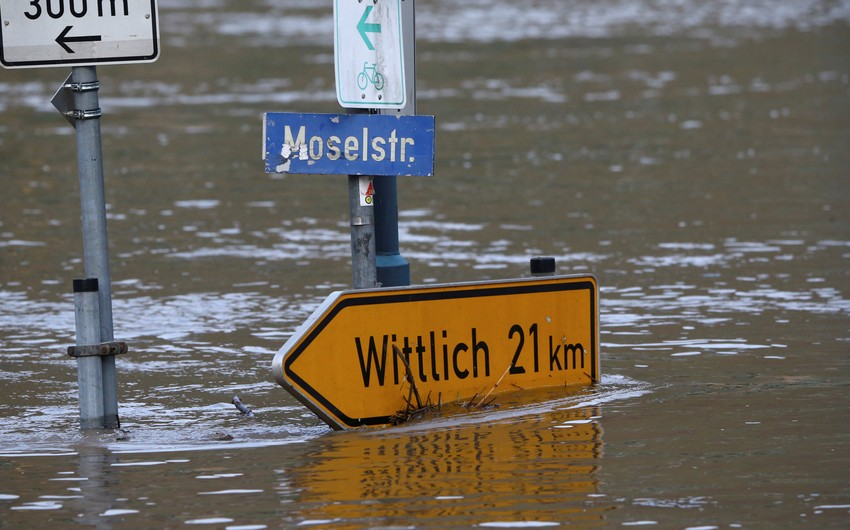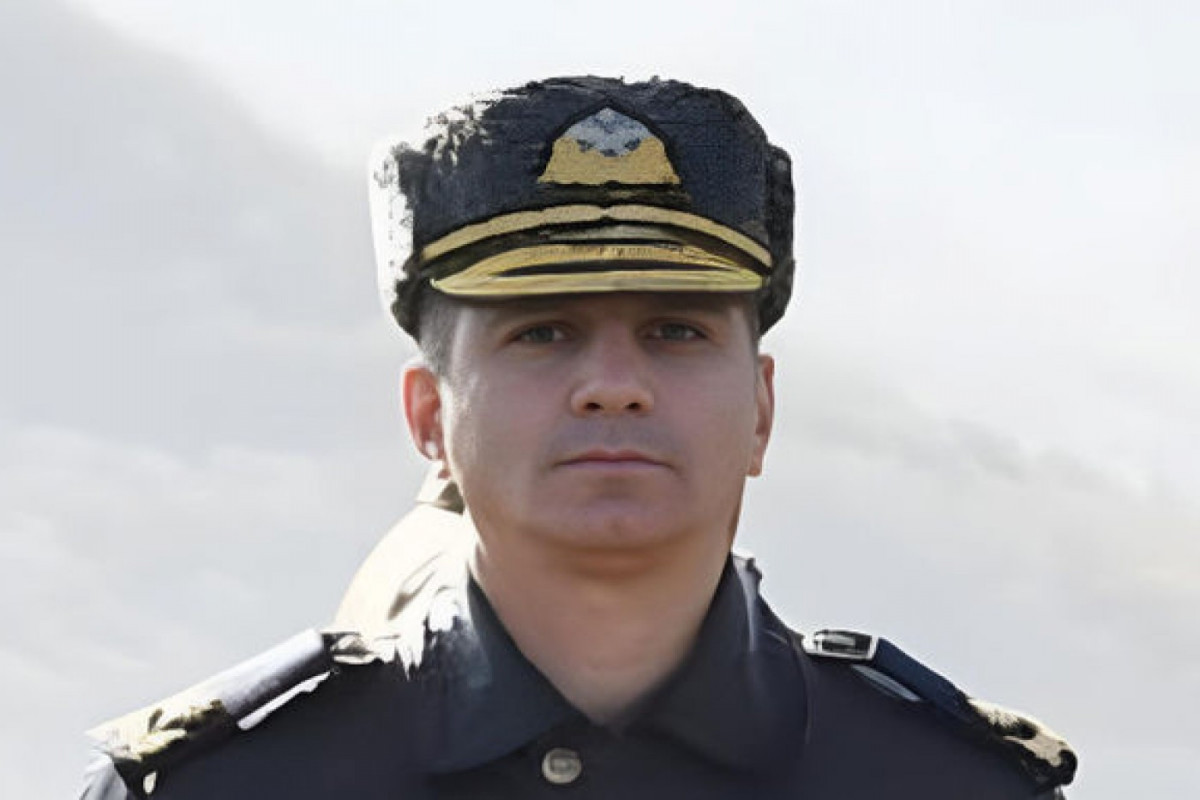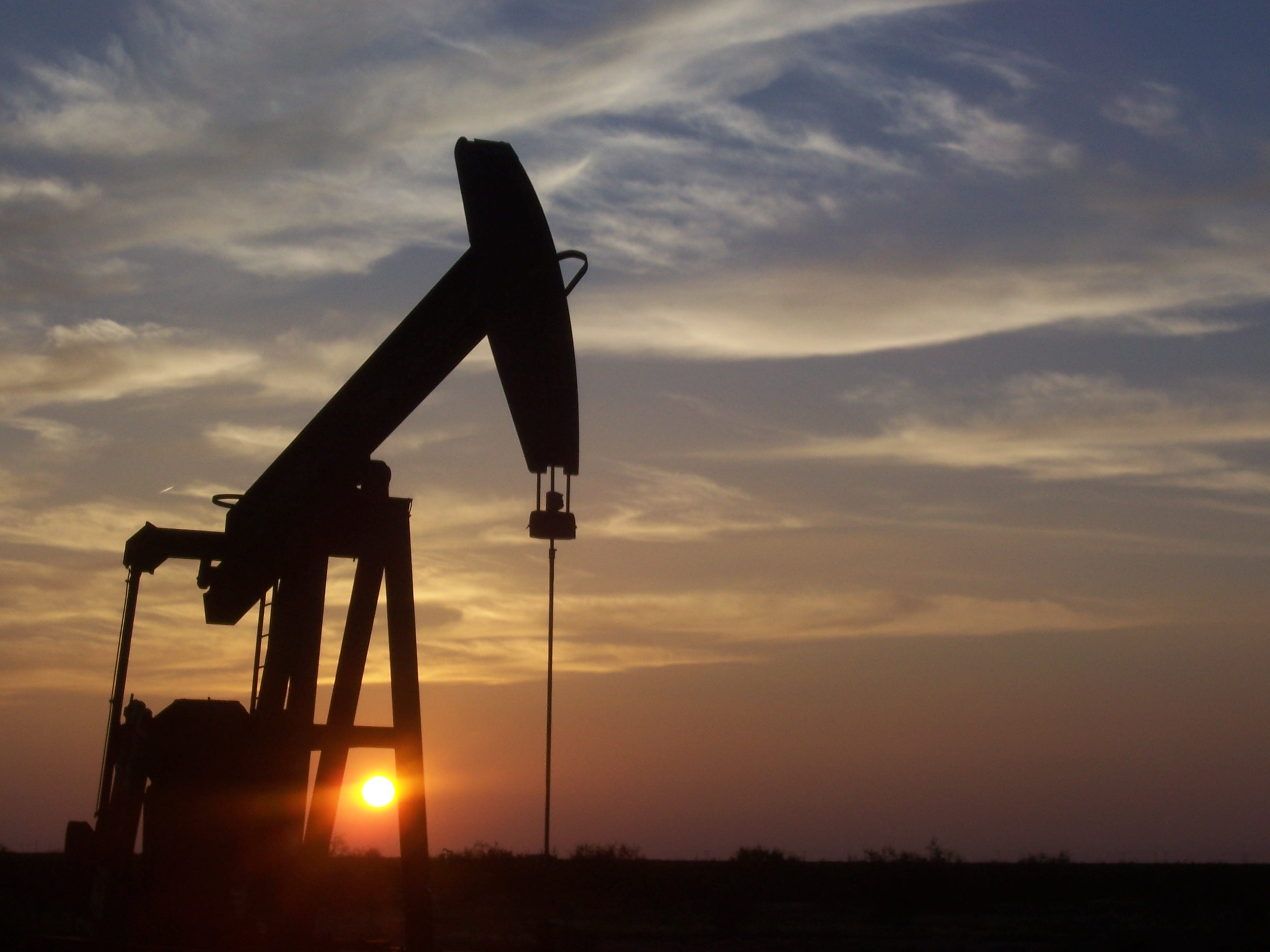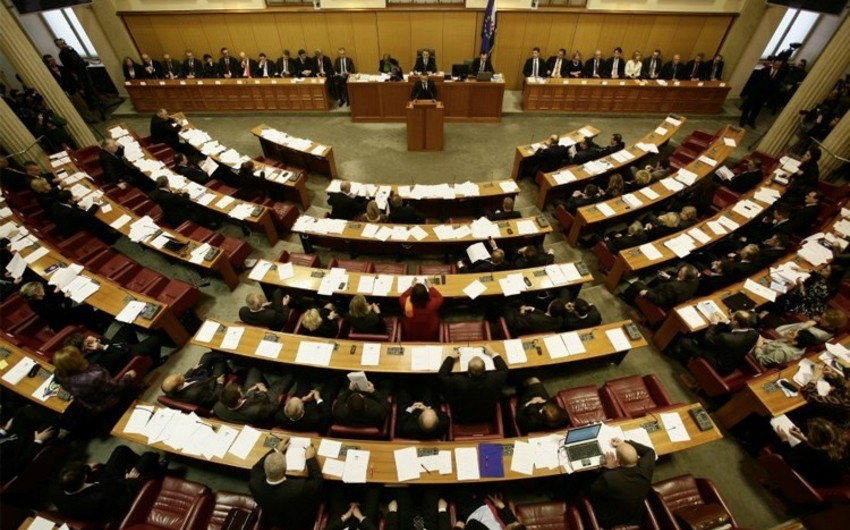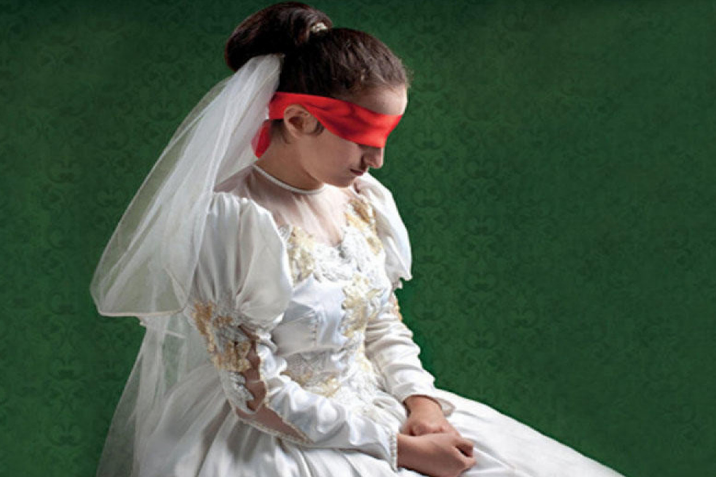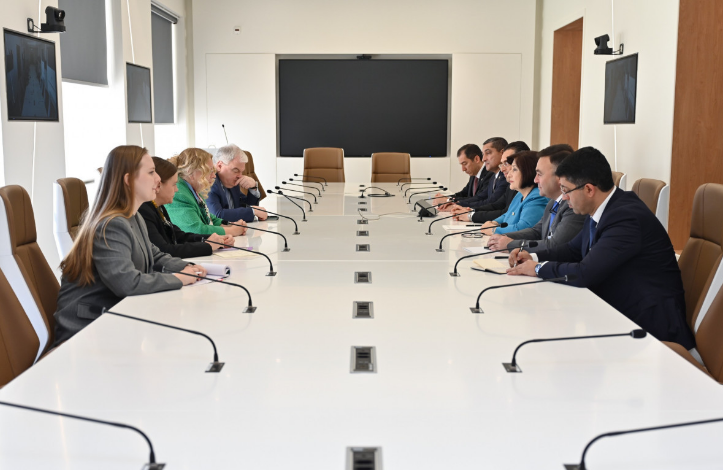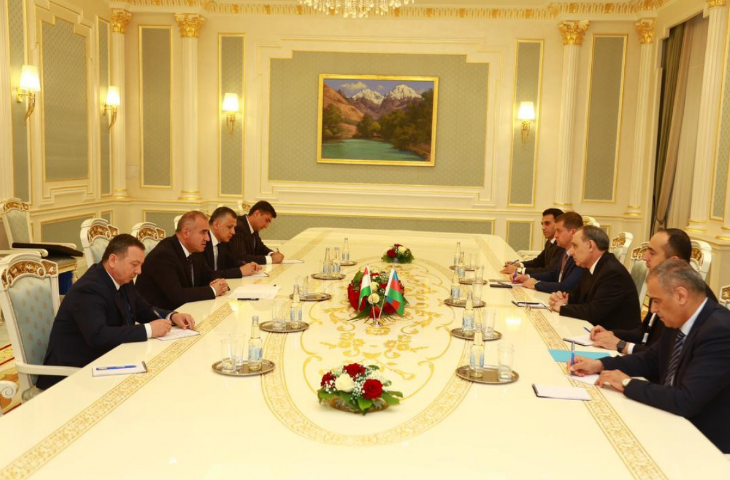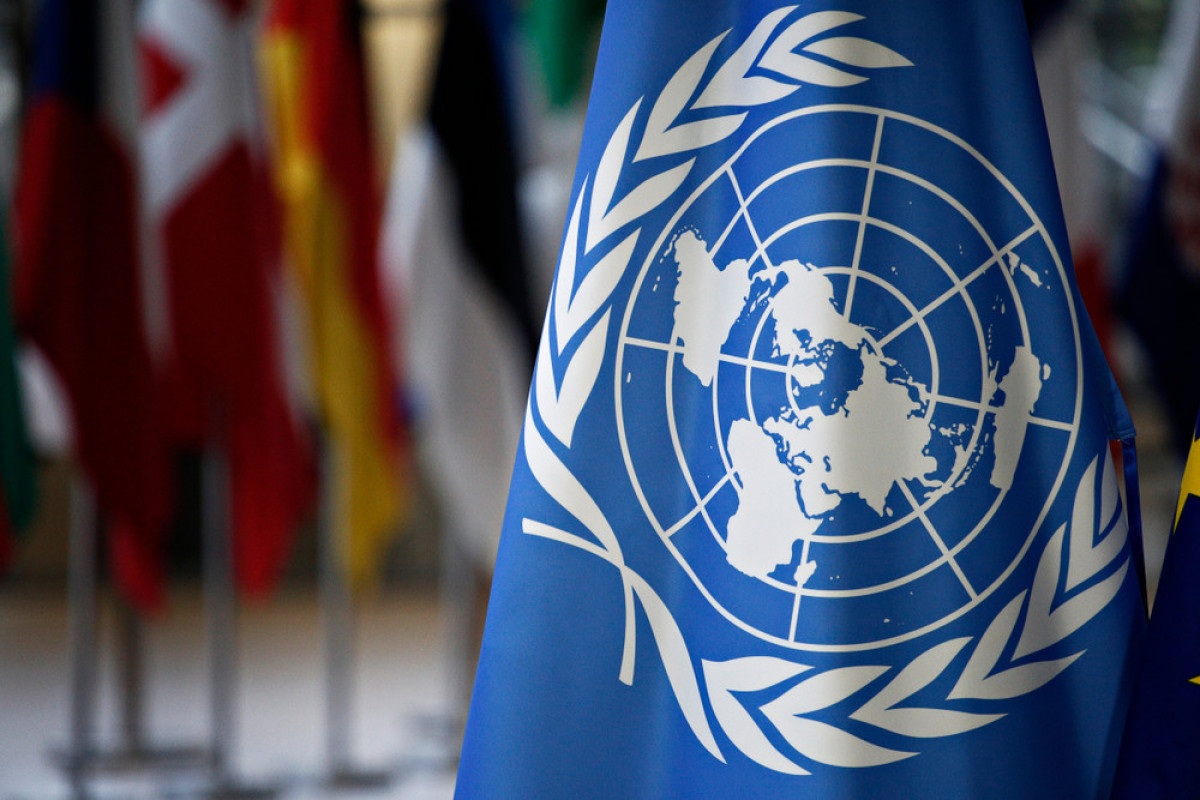As is known before, Ruben Vardanyan has tried to create the impression of a "philanthropist" in recent years, Ednews reports.
Still, he was recognized as a person who, in a short period, became a billionaire due to the apparent dirty money of many. Afterward, he intended to rule the fictionally named "Artsakh Republic," an illegal armed terrorist group created in the territories of Azerbaijan occupied by Armenia, and then gave his best to take power in Armenia. Vardanyan is currently detained in the Remand Facility of the State Security Service of the Republic of Azerbaijan. According to the news, with the finance of dirty money, one of the groups very close to Vardanyan has started a campaign for his nomination for the Nobel Peace Prize.
Notoriously, in 2019, the OCCRP (Organized Crime and Corruption Reporting Project) published an investigative report named "The Troika Laundromat" about Vardanyan's illegal activity.
The report by OCCRP uncovered a complex web of alleged illegal activities involving Ruben Vardanyan, his ownership of Russia's largest investment bank, Troika Dialog, and the creation of numerous 'offshore' companies in the names of unaware Armenian workers. These companies were allegedly used to launder billions of dirty money, with Vardanyan reaping huge profits from these illicit transactions.
Ednews presents the following complete text of the report of OCCRP:
Vast Offshore Network Moved Billions With Help From Major Russian Bank
At first blush, Ruben Vardanyan and Armen Ustyan have nothing in common beyond their Armenian roots.
Vardanyan is a wealthy Russian banker who once led Troika Dialog, the country’s largest private investment bank. He’s spoken at the World Economic Forum in Davos and spent tens of millions of dollars on philanthropic projects in his native Armenia. Ustyan is a seasonal construction worker who shares a chilly apartment with his wife and parents in northern Armenia when he isn’t renovating flats in Moscow.
But Ustyan’s signatures on documents he says he’s never seen draw a direct line to Troika — and to a financial Laundromat that shuffled billions of dollars through offshore companies on behalf of the bank’s clients, many of whom were members of Russia’s elite. The system enabled people to channel money out of Russia, sidestep restrictions in place at the time, hide their assets abroad, and launder money. It also supplied cash to powerful oligarchs, and enabled criminals to mask the illicit origins of their cash.
Ustyan’s name and a copy of his passport appear in the bank documents for an offshore shell company that played a role in Troika’s system. The company was one of at least 75 that formed the complex financial web, which functioned from 2006 to early 2013. Over that period, Troika enabled the flow of US$ 4.6 billion into the system and directed the flow of $4.8 billion out. Among the counterparties on these transactions were major Western banks such as Citigroup Inc., Raiffeisen, and Deutsche Bank. The dozens of companies in the system also generated $8.8 billion of internal transactions to obscure the origin of the cash.
(Citigroup didn’t respond to a request for comment on this story; Raiffeisen declined to comment, citing client confidentiality; and Deutsche Bank said it had “limited access” to information about Troika client transactions and couldn’t comment on specific businesses for legal reasons.)
At the time, Vardanyan was Troika’s president, chief executive officer, and principal partner. He enjoyed a reputation as a Western-friendly representative of Russian capitalism, known for working to improve the country’s business environment and for co-founding the Moscow School of Management Skolkovo.
Meanwhile, employees at Troika were setting up the opaque financial system — dubbed here the Troika Laundromat because of its resemblance to previous money laundering schemes uncovered by OCCRP.
As with the previous Laundromats, many of the large transactions were made on the back of fictitious trade deals. The bogus deals were invoiced variously as “goods,” “food goods,” “metal goods,” “bills,” and “auto parts.” All the invoices included in the leak were signed by proxies and sent from Troika.ru email addresses.
Ruben Vardanyan.
This portrait of the operation emerges from a trove of leaked banking transactions and other documents obtained by OCCRP and the Lithuanian news site 15min.lt, and shared with 21 media partners.
As a whole, the data set includes over 1.3 million banking transactions from 238,000 companies and people, as well as thousands of emails, contracts, and company registration forms. This analysis of Troika’s network is based on a subset of the data.
In an interview, Vardanyan said his bank did nothing wrong and that it acted as other investment banks did at the time. He stressed that he couldn’t have known about every deal his enormous bank facilitated for its clients. Reporters found no evidence that he was ever investigated or accused of any wrongdoing by authorities. His signature was found on only one document (https://www.occrp.org/documents/troikalaundromat/VARDANYAN_SIGNED_CONTRACT.pdf) in the entire scheme, in which he gives a loan to a Troika Laundromat company.
Vardanyan described the system as a private wealth management service.
Referring to the constellation of offshore companies that comprised the Laundromat, he said: “Those are technical service companies of Troika Dialog clients, among them, mine.”
“It could be called a ‘multi-family office,’” he said. “A similar practice still exists at foreign banks. Most of their clients work through international companies. I repeat: We always acted according to the rules of the world financial market of that time … Obviously, rules change, but measuring a market in the past by today’s laws is like applying modern compliance standards to the time of the Great Depression. You’ll agree that this distorts the true situation.”
Asked about the fictitious trade deals, Vardanyan said Troika Dialog’s revenue topped 2 trillion rubles from 2006–2010 ($63–85 billion, depending on currency fluctuations) and that he “couldn’t possibly know about all the deals in a company of this size.”
Though such practices were considered business as usual in Russia at the time, specialists note that systems like the Troika Laundromat can have serious repercussions.
The schemes stunt national economic development, undermine human security, and diminish the quality of life for people left behind, said Louise Shelley, director and founder of George Mason University’s Terrorism, Transnational Crime, and Corruption Center and author of the book “Dark Commerce.”
“Money laundering countries, particularly in the developing world, are losing enormous amounts of capital that are needed for infrastructure development, education, health, [and] the development of new businesses, of entrepreneurship,” Shelley said. “With this much money lying overseas, you can do all sorts of malicious things. You can interfere in electoral processes. You can help pay for fake news.”
Criminal Services
The Laundromat wasn’t just a money laundering system. It was also a hidden investment vehicle, a slush fund, a tax evasion scheme, and much more.
Troika’s clients also used it to buy properties in Great Britain, Spain, and Montenegro; to acquire luxury yachts and artwork; to pay for medical services and World Cup tickets; to cover tuition at prestigious Western schools for their children; and even to make donations to churches.
In addition, the Troika Laundromat enabled organized criminal groups and fraudsters to launder the proceeds of their crimes. OCCRP and partners have identified several high-level frauds perpetrated in Russia that used Laundromat companies to hide the origins of their money.
One of these schemes, known as the Sheremetyevo Airport fuel fraud
(https://www.reportingproject.net/proxy/en/moscow-airport-used-in-fuel-fraud), took place from 2003 to 2008 and artificially inflated aviation fuel prices while depriving the Russian state of more than $40 million in tax revenue. The scheme led to a hike in plane ticket prices. More than $27 million was sent by companies involved in the fraud to Troika Laundromat accounts. Vardanyan has not been implicated in the scheme and said he had no knowledge of it. In 2010, two years after the fraud ended, Troika Dialog began consulting for the airport along with Credit Suisse.
A second significant criminal inquiry tied to the Laundromat, from which $17 million ended up in the system, involves a tax avoidance scheme allegedly perpetrated by several Russian insurance companies. A man named Sergei Tikhomirov was accused of concluding false service contracts with the insurers as a pretext for having them send him large sums of money, which his accusers say he cycled through several accounts before depositing it abroad or cashing in. A portion of the money ended up in the Laundromat. (Tikhomirov did not respond to phone calls seeking comment.)
In a third case, at least $69 million went to companies associated with Sergei Roldugin, a Russian cellist, who became famous after his vast unexplained wealth was revealed by OCCRP (https://www.occrp.org/en/panamapapers/persons/roldugin/), the International Consortium of Investigative Journalists, and other media partners in the Panama Papers project. Some of the money that Roldugin’s companies received from the Laundromat originated in a massive Russian tax fraud exposed by Sergei Magnitsky, a Russian lawyer who died in jail after revealing it.
Roldugin didn’t respond to an email requesting comment, and Vardanyan said that he knew of the cellist, but was not aware that he had any business dealings with Troika.
Companies involved in the fraud exposed by Magnitsky moved more than $130 million through the Troika Laundromat. Hundreds of millions of dollars went into and out of the Laundromat for unknown purposes.
Vardanyan said he was not aware of any of these transactions.
“Understand, I’m no angel,” he said. “In Russia, you have three paths: Be a revolutionary, leave the country, or be a conformist. So I’m a conformist. But I have my internal restraints: I never participated in loans-for-shares schemes, I never worked with criminals, I’m not a member of any political party. That’s why, even in the ’90s, I went around with no security guards. … I’m trying to preserve myself and my principles.”
Vardanyan and his family were among those who received money from the Laundromat. More than $3.2 million was used to pay for his American Express card, went to accounts belonging to his wife and family, and paid school fees for his three children in Great Britain.
Asked about these sums, Vardanyan said the offshore companies Troika created serviced his own companies in addition to the bank’s clients.
Troika as Capstone
The Troika Laundromat is unique among the Laundromats that have been uncovered in recent years in that it was created by a prestigious financial institution.
Established in the early 1990s, Troika Dialog became Russia’s largest private investment bank. It operated under Vardanyan’s leadership until 2012, when it was purchased by Sberbank, the nation’s largest state-owned lender.
Like all investment banks, Troika handled stock and bond issuance, initial public offerings, and acted as an underwriting agent. It also had a strong relationship with the local office of Citibank Inc., with up to 20 percent of Troika’s new investors coming via the American behemoth. That made New York-based Citibank Troika’s biggest “external agent,” according to a 2006 interview with Troika co-founder Pavel Teplukhin. (Citibank didn’t respond to requests for comment.)
Other major international banks, including Credit Suisse and Standard Bank Group, did significant business with Troika as well.
Starting in 2006, Troika employees began putting together the pieces of the Troika Laundromat.
Four essential elements are needed to build a functioning Laundromat: a bank with low anti-money laundering compliance standards; a maze of secretive offshore companies to hold accounts at the bank; proxy directors and shareholders for both the companies and the accounts; and the so-called formation agents that can quickly create, maintain, and dissolve the offshore companies as needed.
The bank orchestrated all of these components of the Troika Laundromat, in addition to directing the money flows and fake trade deals that made up its operations.
The pivotal mechanism was based on trade: Shell companies created bogus invoices for non-existent goods and services to be purchased by other companies in the system. The practice provides a fig leaf of legitimate economic activity that makes the transactions appear less suspicious to regulators.
“You’re disguising an illegal payment by pretending that it is linked to a shipment of goods,” said Shelley, the George Mason corruption expert. “The trade-based system is one of the most central parts of money laundering in the world today.”
Al-Qaida founder Osama bin Laden used a similar system to move money around the Middle East, she said.
If Troika was the capstone of the Laundromat, its cornerstones were three British Virgin Islands-based shell companies: Brightwell Capital Inc., Gotland Industrial Inc., and Quantus Division Ltd. Brightwell’s first known transaction was on April 12, 2005. Gotland was established on Feb. 17, 2006, and Quantus followed six months later on Aug. 23.
An analysis of these companies’ banking records reveals how they put the Laundromat together: Starting in 2006, they made numerous small payments to a formation agent called IOS Group Inc. to create the dozens of companies that comprised the complete Laundromat. IOS didn’t respond to requests for comment.
The three cornerstone companies then continued making payments to IOS ranging from 40 to almost 5,000 euros over almost six years to keep the entire network operating. Over that span, the total reached over 143,000 euros.
Quantus, for example, paid formation and maintenance fees for the British Virgin Islands-based Kentway SA. This company was later used, among many others, to send millions of dollars to Sandalwood Continental Ltd., a company connected to Sergei Roldugin, the cellist.
Quantus’ involvement with Kentway demonstrates the many ways in which the Laundromat companies were interconnected. In this case, after first helping establish Kentway, Quantus then funded it with money that Kentway forwarded to Roldugin’s company.
The Bank
To direct the flow of funds through the Laundromat, Troika needed a commercial bank to host accounts for the companies involved. And it needed that bank to avoid looking too closely at the contracts and trades Laundromat businesses used to justify moving money from one offshore company to another.
Troika chose Lithuania’s Ukio Bankas for the job. (The Lithuanian lender would later be seized by the country’s National Bank in 2013 for engaging in risky deals and failing to follow regulators’ orders.) Ukio is known to have set up accounts for 35 companies used in the Troika Laundromat, and likely more.
Because Lithuania wasn’t yet using the euro, Ukio needed correspondent accounts at European banks, such as the Austrian Raiffeisen or the German Commerzbank AG, to handle euro-denominated transactions. Those two lenders and many other large European and U.S. financial institutions accepted Laundromat money, though they did sporadically inquire about the nature of some transactions.
After prodding by one of the correspondent banks, for example, some Ukio compliance officers made inquiries about Laundromat payments that didn’t make commercial sense.
“What is the essence of this transaction? We have a contract (attached), but to be honest, I don’t get what’s happening,” one officer wrote, adding an unhappy face, about a payment that went to a company associated with Roldugin.
By this point, the money had already left Ukio’s accounts.
Asked why Ukio was chosen as the banker for the offshore companies Troika created, Vardanyan said it was just one of about 20 banks Troika used around the world.
The Armenian Proxies
A central figure in many of the transactions involving the Laundromat companies was Armen Ustyan. Far from being an investment banker, Ustyan, 34, works seasonally as a construction worker in Moscow.
Ustyan’s signature can be found on contracts and banking paperwork in the Troika Laundromat along with those of a few other Armenians. Wearing an old military jacket and hat, he sat down with reporters this January in his cold living room to answer questions about high finance.
Ustyan said he had never heard of Dino Capital SA, the Panama-based Laundromat company whose Ukio bank account was registered using his signature. A copy of his passport was attached, but Ustyan insisted he had no idea how it got there.
At his mother’s request, he wrote his signature on a piece of paper and concluded that the one associated with Dino Capital had probably been forged.
In addition to having his signature associated with Dino Capital’s bank account, Ustyan is also listed as an attorney authorized to sign contracts on the company’s behalf, and his signature appears on at least $70 million worth of financial agreements.
The Armenian said he knew none of this, though he did recall a slim connection to Troika Dialog: While in Moscow looking for work, Ustyan stayed with a Russian Armenian whose brother he said worked for the investment bank and helped him find employment.
The Moscow address is indeed that of Nerses Vagradyan, a Russian citizen of Armenian descent. Nerses’ brother, Samvel Vagradyan, is a director of a Russian company that received millions of dollars from Brightwell, a core Laundromat company. A Samvel Vagradyan is also mentioned on Vardanyan’s website as a donor to the banker’s charitable causes. It’s unknown whether Samvel really worked for Troika.
Neither of the Vagradyan brothers could be reached for comment. Ustyan said he doesn’t believe they used his identity.
Another Armenian front man in the Laundromat appears to be Edik Yeritsyan. His identity was used to register an account at Ukio for the Cyprus-based Popat Holdings Ltd. This company was involved in Laundromat transactions worth millions of dollars.
Yeritsyan told OCCRP that he lost his memory three years ago after a car accident and doesn’t remember some parts of his life. However, Ustyan said that he and Yeritsyan lived together in a same flat they were renovating in Moscow.

.jpg)
